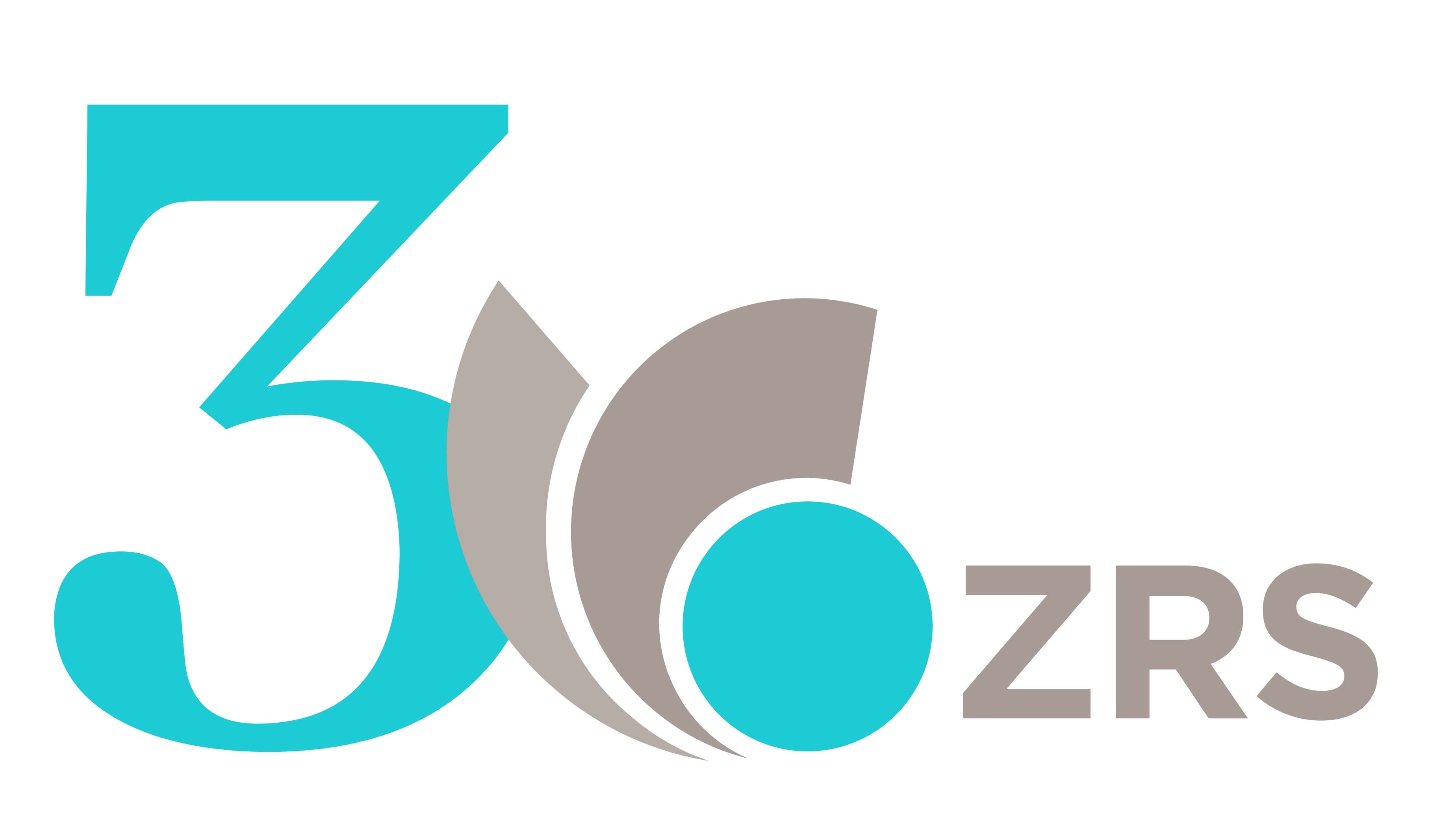
PRESENTATION
The Institute for Philosophical and Religious Studies was founded in 2013 with 8 researchers and one young researcher. The institute is the core institution in the Primorska region that studies classical and contemporary philosophical topics within the scope of fundamental and applied studies. The researchers at the Institute are experts in modern philosophy, social and environmental ethics, comparative religion studies including theology and feminist studies. The field of intercultural philosophy is also well developed within the scope of Institute’s work, combining the researchers in the fields of Islamic, Indian and Chinese philosophies.
Who we are
The Institute is founded on studying contemporary phenomena in the wider philosophical area. The priority tasks and guidelines of the institute are:
- Basic research projects in the fields of philosophy, culture and art
- Philosophy of American pragmatism
- Environmental philosophy and ethics, sustainable development
- Animal rights ethics
- Contemporary studies in the field of political and social philosophy as well as the philosophy of law
- Ethics and peace studies
- Ecofeminism
- Research in the field of dialogue between cultures and religions (the Mediterranean, Islam, Asia)
- Asian studies (India, China) and applied Buddhist studies.
Competences and achievements
The Institute operates as a scientific institute in the field of philosophy. When the first institute for the humanities was active (until 2013), its members obtained 4 fundamental projects, 3 postdoctoral projects, 3 bilateral cooperation projects, 1 CRP project and 2 young researchers. We organised several renowned international conferences in the fields of ethics, Ayurveda, environmental ethics, contemporary social and political philosophy. In the past five years, we issued more than 10 scientific monographs in Slovenia and abroad. The members of the Institute are distinguished researchers who publish their achievements at prestigious world publishing houses.
Mission and vision
The goal of the Institute is to become one of the centres of philosophical research in Slovenia, whereas, the researchers at the Institute cover areas which other such institutions in Slovenia and abroad do not integrate in their work. These areas include the philosophy of American pragmatism, environmental ethics, studies of Islam and Asian philosophies, ecofeminism and feministic theology and Luce Irigaray’s philosophy. The fundamental mission of the Institute is the preservation and strengthening of its international recognition. The Institute is also closely committed to philosophical discussion of current social challenges such as migrations and hospitality ethics, contemporary political ethics and democracy, dialogue between cultures and religions as well as environmental philosophy and sustainable development. The goal of the Institute is to preserve and strengthen quality and innovative and creative environments where new ideas and opportunities for their development will emerge. Our Institute also encourages the linking of ideas in the field of the humanities and contemporary interdisciplinary approaches.
Head: Lenart Škof, PhD, Principal Research Associate
E-mail: ifrs@zrs-kp.si
Phone: +386 5 663 77 00
RESEARCHERS
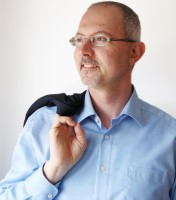
Lenart Škof, PhD
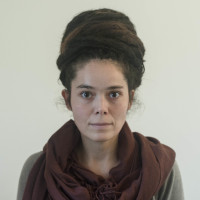
Maja Bjelica, PhD
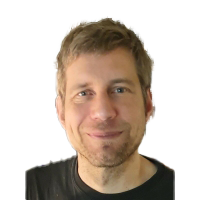

Gorazd Andrejč, PhD

Victoria Dos Santos Bustamante, PhD

Nadja Furlan Štante, PhD

Maja Gutman Mušič, PhD

Noreen Herzfeld, PhD

Tine Hribar, PhD Acad.

Carool Kersten, PhD

Matej Mertik, PhD

Helena Motoh, PhD

Alberto Parisi, PhD

Gašper Pirc

Rok Svetlič, PhD

Tjaša Škorjanc

Karin Šmid
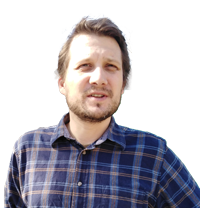
Luka Trebežnik, PhD
RESEARCH PROGRAMMES
Liminal Spaces: Areas of cultural and societal cohabitation in the age of risk and vulnerability (P6-0279)
This research programme will try to study the complexity of the problems proposed by using a combined and coordinated crossdisciplinary and interdisciplinary approach of internationally recognized groups of researchers from the fields of humanities (philosophy) and social sciences (sociology), thus deepening and expanding the work that has been successfully started and conducted by now. The studies in this programme will be focussed in particular on the liminal spaces, emerging within various cultural and societal areas, with their inherent risks and vulnerabilities analysed from the philosophical and sociological, but also broadly humanistic (feminist and gender studies, religious studies and cultural studies) points of view. Within recent developments – such as migration and humanitarian crisis in Europe and especially in the Mediterranean, political processes that threaten or even block further European integration and with the demise of the multi- or intercultural values and values of interreligious dialogue in favor or a more populist scenarios, we are in a need of a response and an indepth study of contemporary phenomena, related to the risks (tat are social and political) and vulnerabilities (as related to the human body and her/his identity) as present and detected in our societies and as found within communities that we are a part of. The main topics and objectives of this project will be: investigations into liminal spaces and borders shaping our lives in the age of uncertainty; studies of the elements of risk society with migration, especially as related to vulnerable bodies and identities of children/minors, women, migrants, dispossessed persons, religious minorities etc.; studies of cultural and societal liminal and contact areas in light of intercultural and interreligous dialogue; finally, peace building and studies in ethics and politics of hospitality and social and political cohabitation, also as related to the future role of Islam in Europe. Within the programme, we will innovatively apply the concept of caring democracy to the field of vulnerability and risk and propose a new view on social and political cohabitation in Europe and in the Mediterranean.
ARRS Code: P6-0279
Period: 1. 1. 2020 – 31. 12. 2025
Programme leader: Lenart Škof, PhD, Principal Research Associate
Asian Languages and Cultures (P6-0243)
The basic design of the proposed program is directed towards investigations of historical developments, political and economic circumstances, cultural and linguistic characteristics of Asian societies. This interdisciplinary program includes studies drawing on various disciplines, as part of a broader field of humanities and social studies. It attempts to synthesize a series of partial studies, dealing with various aspects of Asian regions in terms of the relation between ideal and material paradigms defining their social realities. Studies will include analyses and evaluations of material in native languages, as well as build on information, data and theoretical paradigms available in Western literature. This approach is of fundamental importance, since use of primary sources in native languages enables us to gain a more objective insight into the reality of societies in question.
ARRS Code: P6-0243
Period: 1. 1. 2014 – 31. 12. 2018
Head: prof. Jana Rošker, PhD
ONGOING RESEARCH PROJECTS
Surviving the Anthropocene through Inventing New Ecological Justice and Biosocial Philosophical Literacy (J7-1824)
ARRS Code: J7-1824
Period: 01. 07. 2019 – 30. 06. 2022
Head: Lenart Škof, PhD, Principal Research Fellow
Participating research institutes: Mediterranean Institute for Environmental Studies and Institute for Philosophical Studies
Challenges of Postmodern Philosophy of Religion: Textuality, Transcendence, Community (Z6-2665)
ARRS Code: Z6-2665
Project duration: 1. 10. 2020 – 30. 9. 2022
Project leader: Luka Trebežnik, PhD
Project holder: Institute for philosophical studies
Creatures, Humans, Robots: Creation Theology Between Humanism and Posthumanism (J6-1813)
ARRS Code: J6-1813
Period: 01. 07. 2019 – 30. 06. 2022
Head: Gorazd Andrejč, PhD, Research Fellow
Participating research institute: Institute for Philosophical Studies
Web page
Interreligious dialogue – a Basis for Coexisting Diversity in the Light of Migration and the Refugee Crisis (J6-9393)
This project deals with the question of the importance of cultivation of an active, sincere interreligious dialogue, in the context of contemporary migrations, that recognizes and breaks down negative stereotypes and prejudices, raises the level of tolerance, respect and strengthens mutual understanding both in the everyday life of individuals of different religions and spiritualities as well as at the hierarchical institutional religious levels. The main goal of the project is (based on a critical evaluation, through theological comparative analysis) the search for new paradigms, models and possibilities for the interreligious dialogue, defined by the specifics of the Slovene and Bosnian space, and the connection of these insights with a new ethics of religious peace-building in the light of mutual interdependence and cohesion, and rethinking the role of moral and intellectual virtues, communication, and the importance of inclusion of women’s voices in the framework of the interreligious dialogue.
ARRS Code: J6-9393
Period: 01. 07. 2018 – 30. 06. 2021
Head: Nadja Furlan Štante, PhD, Senior Research Fellow
Participating research institute: Institute for Philosophical Studies
Web page
Reanimating Cosmic Justice: Poethics of the Feminine (J6-8265)
The project deals with a new interpretation of Antigone and her radical ethical act. In the first part of this project, Antigone is compared with Savitri from the Mahabharata and Mary as represented in contemporary feminist thinking and theology. They are be analysed as three guardians of sacred cosmic orders and orders of femininity and related to the logic of unwritten/cosmic/divine laws. The second part of the project is dealing with the new culture of shame and responsibility towards others as related to the divine, cosmic and unwritten ethical laws. These unconditional ethical demands are related and analyzed in relation to the notions of guilt and shame. In its third part the project ends with two case studies of extreme violence in the forgetting of “ethics of the face of the other” and shame in the selected contexts of East- and Southeast Asian cultures (Cambodia and China)
ARRS Code: J6-8265
Period: 01. 05. 2017 – 30. 04. 2020
Head: Lenart Škof, PhD, Principal Research Fellow
Participating research institute: Institute for Philosophical Studies
East Asian Collections in Slovenia: Inclusion of Slovenia in the global exchanges of objects and ideas with East Asia (J7-9429)
The project will for the first time explore and make a comprehensive study of the art objects from East Asia that are stored in various Slovenian museums. While some of these collections have been the subject of research in recent years, a comprehensive, in-depth study has yet to be undertaken. With only a few minor exceptions, the vast majority of these objects are stored in museum depositories, and some signs of deterioration and damage are already evident due to the lack of specific knowledge and thus of improper storage and treatment. In some cases, the existing identification and categorization has also been proven to be incorrect. The project within its scope covers content which had previously not been researched in Slovenia. For the first time we have the opportunity to work with a team of highly qualified experts, which will be able to perform, in cooperation with curators and museums, a quality and top-level research study.
The project is conceived as a response to the challenge of situating the history of the collecting of East Asian objects and of their cultural connotations in the global context, deriving from the paradoxical assumption of the (dis)connection between materiality and cultural connotation. Through the analysis of East Asian collections kept in various museums in Slovenia, this project will examine and reconstruct intercultural relations between the Slovenia and East Asia. It will also critically reappraise the cultural conditionality of so-called East Asian objects in the global history of collecting and make a major contribution to the re-examination of the existing museum taxonomy. Indirectly, the project will thus encourage a different understanding of the binary relationships of the East and West, especially with respect to the Eurocentric frameworks and colonial categories of collecting practices. In addition, the research will also shed light on the particular position of Slovenia within the history of Euro-Asian collectionist connections. Whether we study curiosity collections, collections made by travellers and missionaries or collections of diplomatic gifts, studying their history can enable us to assess the peripheral character of Slovenia in relation to the centres of precolonial, colonial and postcolonial centres of power. In the context of Foucault or Said that special position might also mean that the orientalist-type knowledge production is formed in more complex circumstances and therefore displays different characteristics. We will try to explore this theoretical premise by exploring the history of the representations of East Asia in Slovenian collections.
It is necessary to emphasize that the project will focus on the specifics of the Slovenian cultural and socio-political context for the first time, thus opening up new research opportunities in the previously neglected area. This, in turn, will lead to a re-evaluation of Eurocentric frames and colonial categories of collector practices. In the scope of the proposed project the analyses of collections of East Asian origin will be based on the well-established theories regarding the interpretative nature of objects, deriving from their interdependent relations with human beings. The research will thus undoubtedly fill in relevant gaps in the European global collecting history, which will further contribute to the re-evaluation of established prevailing tendencies in the European collecting history of »East Asian objects«.
After one hundred years of keeping East Asia-related items in museum depositories, it is therefore essential to place the processing of these items within the national framework for the protection of cultural heritage. This would not only contribute to the protection of cultural heritage, but also create the basic foundation for further forms of conservation and restoration. If not, this heritage will continue to dwell in depositories and live dormant lives, where its life-span will surely shorten significantly.
ARRS Code: J7-9429
Period: 01. 07. 2018 – 30. 06. 2021
Project leader: Vampelj Suhadolnik Nataša, PhD
Lead partner of the project: University of Ljubljana, Faculty of Arts
Participating research institute: Institute for Philosophical Studies
Slovene Women Missionaries in India: A Forgotten Chapter in Intercultural Relations (J6-8258)
This project aims to investigate a totally neglected chapter in the cultural history of the connections between India and East-Central Europe by focusing on the role of Slovene women missionaries in India from pre- and post-World-War-II socialist Yugoslavia. The proposed two-pronged research approach combines historical investigations with a solid theoretical framing. The generated outputs will retrieve a discursive archive and excavate a nexus of knowledge-power relations which have hitherto remained unexamined, subjecting them for the first time to a critical analysis from a multidisciplinary perspective.
ARRS Code: J6-8258
Period: 1. 5. 2017 – 30. 6. 2020
Project leader: Ana Jelnikar, PhD
Lead partner of the project: ZRC SAZU
Participating institute ZRS Koper: Institute for Philosophical Studies
FINISHED RESEARCH PROJECTS
The Return of the Religious in Postmodern Thought as a Challenge for Theology (J6-7325)
In a time of a postmodern and post-secular return of the religious on both the individual and societal levels, this joint Slovenian-Austrian research project aims to be an original contribution towards building a new platform of dialogue between postmodern thinking and theology. Its goal is an identification and analysis of theologically relevant topoi, which this project intends to explore according to three venues of postmodern thought. The first venue includes representatives of French phenomenology (e.g. Levinas, Henry, Marion, Chrétien) who have undertaken within this field the so-called “theological turn,” and have thus revealed new possibilities for the means of relation between philosophy and theology. The second venue of inquiry relates more to hermeneutical thinkers (e.g. Ricoeur, Vattimo, Caputo) who have already initiated dialogue with the biblical religious tradition and thereby demonstrated the potential of postmodernism for theological reflection. The third venue consists of two alternative postmodern approaches, which embody two different orientations. Girard’s anthropological approach returns to Christianity and adopts an affirmative attitude toward it, while on the other hand, Luce Irigaray demands a critical reinterpretation of Christianity from the feminist point of view and calls for a broader notion of religiosity with new topoi of corporeal gestures of proximity and of cosmico-ethical elements.
In the first phase of the project, the research will critically examine different notions of transcendence in relation to the aforementioned postmodern thinkers, who are of crucial importance for a dialogue with Christian theology. The second phase will engage in extrapolating theologically relevant topoi, which will serve as a horizontal connection between different postmodern approaches. Such topoi include, for example, the notions of gift and grace, event and narration, time and messianism, call and response, sensitivity and incarnation, weakness and kenosis, love (caritas) and hospitality. The main quality of this project consists, however, in combining two different approaches. The inquiry into postmodern thinking will not investigate only its relevance for theology (ad intra), but will also inquire into the presence of – often not reflected – religious elements on the societal level and to identify religious topoi in our post-secular society (ad extra). The Austrian partner will explore the potential of the theological turn in phenomenology for a post-secular political philosophy and thereby contribute to a better understanding of the postmodern status of religion in society. The synergy of both approaches (ad intra and ad extra) and the mutual relevance of the research results will provide a basis for new possibilities of dialogue between theology and secular thought, and between religion and society. Thus, it will contribute to overcoming the modern Enlightenment paradigm of separation between religion and society, which often amounts to an exclusion of religion from society, and will move toward a new culture of coexistence and mutual respect.
ARRS Code: J6-7325
Period: 1. 1. 2016 – 31. 12. 2018
Project leader: Branko Klun, PhD
Lead partner of the project: University of Ljubljana, Faculty of Theology
Participating institute ZRS Koper: Institute for Philosophical Studies
Web page
Between Ethics and Politics: Towards A New World Culture of Hospitality and Non-violence (J6-5565)
The aim of this project was to establish a new platform for philosophical thinking of intersubjectivity and interculturality and to awaken contemporary philosophy towards a more sensitive approach towards hospitality as needed in our times. In the first part, the proposed project addressed the problem of the many layers of violence inherent in a variety of Western philosophical theories pertaining to ethics and political philosophy. The project critically examined the major theories and theoreticians of violence to suggest it is within the notion of ethical intersubjectivity (as proposed by Levinas, Derrida, Irigaray and others) that a search for a new platform of thinking about non-violence can begin. Having this aim, the project then introduced the concept of hospitality as a bridge towards a new ethics of intersubjectivity. By analysing selected philosophical discourses from different world cultures and world philosophies (Judaism, Christianity, Islam, Hinduism, Buddhism, Jainism, Daoism, Confucianism) the project team finally proposed a new world culture of hospitality and non-violence, having a potential for conflict resolution at personal, social and political levels.
ARRS Code: J6-5565
Period: 1. 8. 2013 – 31. 7. 2016
Head: Lenart Škof, PhD, Principal Research Fellow
Participating institute: Institute for Philosophical Studies
